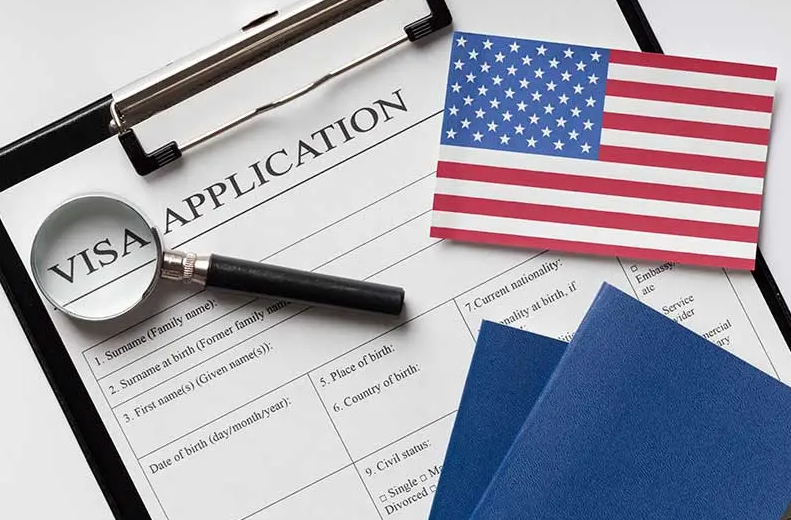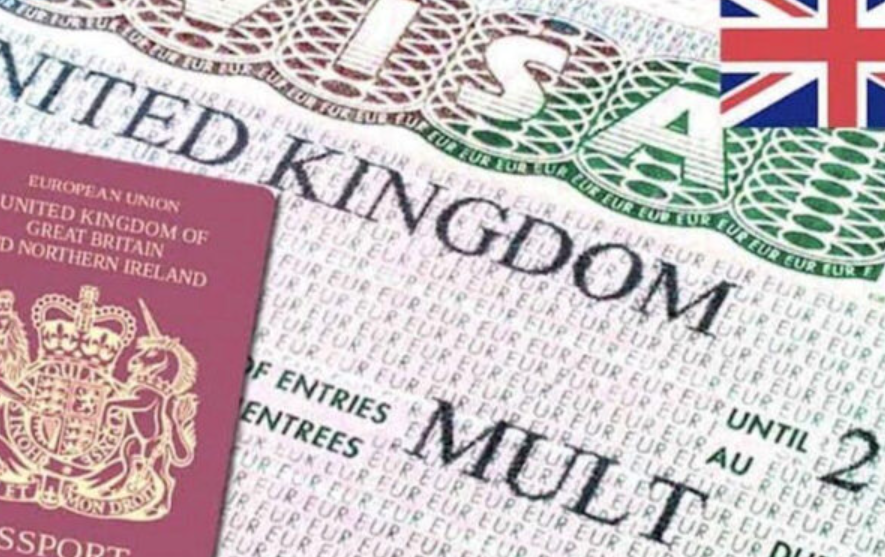Many individuals worldwide aspire to experience the vibrant culture, robust economy, and quality of life the UK offers. While skilled professionals often grab headlines regarding UK visa sponsorships, a lesser-known avenue exists: jobs in the UK with visa sponsorship opportunities for unskilled workers. This article dives deep into this often-overlooked pathway, providing you with valuable insights and actionable steps to potentially secure your UK dream.
This guide is more than just a list of potential jobs; it’s a compass, pointing you towards the resources and strategies you need to succeed. It’s about empowering you to take control of your future and transform your aspiration of living and working in the UK into a tangible reality. We understand that the journey can be daunting, filled with uncertainties and potential setbacks. But within these pages, you’ll find the information, encouragement, and actionable advice to confidently embark on this life-changing adventure.
Why the Demand for Unskilled Workers in the UK?
The UK’s economic landscape, while often perceived as driven by high-tech industries and specialized professions, maintains a crucial foundation built upon the contributions of unskilled and semi-skilled workers. This demand isn’t a mere anomaly; it’s a reflection of complex economic and social factors that consistently create openings for jobs in the UK with visa sponsorship opportunities for unskilled workers. Let’s delve deeper into the core reasons behind this persistent need:
-
The Essential Backbone: Labour-Intensive Industries:
- Agriculture: Feeding the Nation: The UK’s agricultural sector, crucial for food security, relies heavily on seasonal workers for tasks like harvesting fruits and vegetables, packing produce, and general farm labour. These jobs are often physically demanding and require flexibility, making them less attractive to the domestic workforce. This persistent labour shortage forces employers to seek international talent, creating opportunities for jobs in the UK with visa sponsorship opportunities for unskilled workers.
- Hospitality: The Engine of Service: The UK’s vibrant hospitality sector, encompassing hotels, restaurants, pubs, and catering services, is a significant employer. From kitchen assistants and cleaners to housekeeping staff and general assistants, these roles are vital for the smooth operation of these businesses. The transient nature of some of these jobs, combined with demanding hours, contributes to labour gaps.
- Care Sector: Addressing Demographic Shifts: The UK’s aging population presents a growing demand for care workers to support the elderly and vulnerable. Care homes, hospitals, and community care services require dedicated individuals for roles like care assistants, home carers, and support workers. The emotional and physical demands of these jobs, coupled with relatively lower wages, make it challenging to fill vacancies with domestic workers alone.
- Construction: Building the Future: While some construction roles require specialized skills, many entry-level positions, such as general labour, site clearance, and material handling, are essential for project completion. Fluctuations in the construction market and the physically demanding nature of these jobs can contribute to labour shortages.
-
The Demographic Puzzle: An Aging Workforce and Labour Gaps:
- The UK, like many developed nations, faces an aging population, leading to a shrinking pool of younger domestic workers entering the labour market.
- This demographic shift creates labour gaps in sectors traditionally reliant on younger workers, such as agriculture and hospitality.
- The result is an increased reliance on international workers to fill these essential roles.
-
Economic Factors: Balancing Supply and Demand:
- Economic growth and expansion in certain sectors can lead to increased demand for labour, outpacing the supply of domestic workers.
- Seasonal fluctuations in industries like agriculture and tourism create temporary but significant labour shortages.
- The need to maintain competitive labour costs can also incentivize employers to seek international workers.
-
The Societal Imperative: Filling Essential Roles:
- Many unskilled or semi-skilled jobs are essential for the functioning of society, providing vital services that contribute to the quality of life.
- These roles are often undervalued and underpaid, making them less attractive to domestic workers.
- The need to ensure the availability of these essential services drives the demand for international workers.
-
The Impact of Brexit and Immigration Policy:
- Brexit has altered the UK’s immigration landscape, impacting the availability of workers from EU countries.
- While the UK government is focusing on attracting skilled workers, the need for unskilled workers in critical sectors remains.
- The Skilled Worker visa, while primarily designed for skilled roles, can also be utilized for certain unskilled positions that meet specific criteria.
The demand for unskilled workers in the UK is a multifaceted issue stemming from sector-specific labour shortages, demographic shifts, economic factors, and the nature of the work itself. Understanding these dynamics is crucial for both employers seeking to fill vacancies and individuals seeking jobs in the UK with visa sponsorship opportunities for unskilled workers.
Understanding the UK Visa Sponsorship for Unskilled Workers
The prospect of securing a job in the UK is exciting, but the reality of navigating the visa system can feel overwhelming, especially for those seeking jobs in the UK with visa sponsorship opportunities for unskilled workers. While the term “unskilled” might suggest limited possibilities, the UK’s immigration framework, particularly the Skilled Worker visa route, offers potential avenues for individuals willing to work in essential sectors facing labour shortages. Let’s break down the complexities and clarify the crucial aspects of visa sponsorship.
-
The Skilled Worker Visa: A Broader Definition Than You Think:
- Contrary to its name, the Skilled Worker visa isn’t exclusively for highly specialized professionals. It encompasses a range of occupations, including those considered semi-skilled or requiring lower qualification levels.
- The key lies in the “occupation codes” listed on the UK government’s website. Certain roles within agriculture, hospitality, and care, despite not demanding extensive formal qualifications, are eligible for sponsorship under this route.
- The visa requires that the job meets a minimum salary threshold, which can vary depending on the specific occupation code.
-
The Employer’s Role: Sponsorship and Responsibilities:
- For an unskilled worker to obtain a Skilled Worker visa, a UK-based employer must act as a sponsor.
- The employer must hold a valid sponsor license, which authorizes them to hire foreign nationals.
- The employer needs to demonstrate that they cannot fill the vacancy with a resident worker, a process known as the Resident Labour Market Test (RLMT). While this test has been modified, the employer still needs to show that they have made reasonable attempts to recruit domestically.
- Sponsorship involves administrative and financial responsibilities for the employer, which can deter some smaller businesses.
-
Occupation Codes and Eligibility:
- The UK government assigns occupation codes to various jobs, which determine their eligibility for visa sponsorship.
- It’s crucial to research the specific occupation code related to the job you’re applying for and ensure it’s eligible for sponsorship under the Skilled Worker visa.
- You can find the list of eligible occupation codes on the UK government’s website.
-
Key Requirements for the Applicant:
- Job Offer: A confirmed job offer from a licensed UK sponsor is the foundation of your application.
- Certificate of Sponsorship (CoS): Your employer will issue a CoS, a unique reference number that confirms your job offer and sponsorship.
- Salary Threshold: You must meet the minimum salary threshold for your specific occupation code.
- English Language Proficiency: You’ll need to demonstrate your English language skills through a recognized test, such as IELTS.
- Financial Requirements: You must prove you have sufficient funds to support yourself during your initial stay in the UK.
- Criminal Record Check: You may need to provide a criminal record check from your home country.
- Health Requirements: You may need to undergo a tuberculosis (TB) test, depending on your country of origin.
-
Potential Challenges and Considerations:
- Finding a Sponsor: The biggest hurdle is finding an employer willing to sponsor your visa. Many smaller companies are hesitant to navigate the complexities of the sponsorship process.
- Salary Thresholds: Meeting the minimum salary requirements can be challenging for some unskilled roles.
- Visa Processing Times: The visa application process can be lengthy, requiring patience and meticulous attention to detail.
- Changes to Immigration Rules: The UK’s immigration policies are subject to change, so staying updated on the latest regulations is essential.
-
The Importance of Thorough Research:
- Before applying for any job, thoroughly research the employer, the job requirements, and the visa sponsorship process.
- Utilize official government resources and reputable immigration websites for accurate information.
- Consider seeking advice from an immigration professional if you have complex questions or concerns.
Understanding UK visa sponsorship for unskilled workers requires a nuanced approach. It’s about recognizing the opportunities within the Skilled Worker visa framework, navigating the employer sponsorship process, and fulfilling the stringent requirements set by the UK government. By conducting thorough research and approaching the process with diligence, you can increase your chances of securing a job and realizing your UK aspirations.
Eligibility Criteria for Jobs in the UK with Visa Sponsorship Opportunities for Unskilled Workers
Securing jobs in the UK with visa sponsorship opportunities for unskilled workers hinges on meeting specific eligibility criteria. While the path may seem complex, understanding these requirements is crucial for a successful application. Let’s delve into the key aspects:
-
Job Offer and Certificate of Sponsorship (CoS):
- Genuine Job Offer: The cornerstone of your application is a legitimate job offer from a UK employer who holds a valid sponsor license. This offer must align with an eligible occupation code under the Skilled Worker visa.
- Certificate of Sponsorship (CoS): Once you accept the job offer, your employer will issue a CoS. This electronic document is a unique reference number that confirms your job offer and sponsorship. Without a valid CoS, your visa application cannot proceed. The CoS verifies that the employer is willing to sponsor your visa and that the job meets the required criteria.
-
Occupation Codes and Skill Levels:
- Eligible Occupation Codes: The UK government publishes a list of eligible occupation codes for the Skilled Worker visa. Even for roles considered “unskilled,” they must fall within these codes.
- Skill Level Considerations: While the term “unskilled” is used colloquially, the visa process assesses job roles based on skill levels. Some roles within agriculture, hospitality, and care, despite not needing extensive formal qualifications, are considered to have a certain skill level that qualifies for sponsorship.
- SOC Codes: The UK uses the Standard Occupational Classification (SOC) system. Ensuring your job aligns with the correct SOC code is essential.
-
Salary Thresholds: Meeting Financial Requirements:
- Minimum Salary Requirement: The Skilled Worker visa has a minimum salary threshold, which varies depending on the specific occupation code and the applicant’s circumstances.
- Going Rate: The “going rate” is the typical salary for a specific job in the UK. Your offered salary must meet or exceed this rate to qualify for sponsorship.
- National Minimum Wage vs. Skilled Worker Threshold: It’s crucial to distinguish between the National Minimum Wage and the Skilled Worker visa salary threshold. The latter is significantly higher and reflects the government’s aim to attract skilled workers.
-
English Language Proficiency: Demonstrating Communication Skills:
- Required Standard: You must demonstrate your English language proficiency through a Secure English Language Test (SELT) from an approved provider.
- Minimum CEFR Level: The required standard is typically CEFR level B1 (Common European Framework of Reference for Languages).
- Approved Tests: Accepted tests include IELTS for UKVI, PTE Academic UKVI, and LanguageCert International ESOL SELT.
-
Financial Requirements: Proving Self-Sufficiency:
- Maintenance Funds: You must demonstrate that you have sufficient funds to support yourself during your initial stay in the UK.
- Proof of Funds: This can be shown through bank statements, savings accounts, or a letter from your employer confirming they will cover your initial expenses.
- Varying Amounts: The exact amount required can vary depending on your circumstances and the length of your stay.
-
Criminal Record Check and Health Requirements:
- Criminal Record Check: You may be required to provide a criminal record check from your home country to demonstrate good character.
- Tuberculosis (TB) Test: Depending on your country of origin, you may need to undergo a TB test before applying for your visa.
- Health Insurance: While not always a mandatory requirement for the initial visa, having comprehensive health insurance is highly recommended.
-
Specific Sector Requirements:
- Agriculture: Seasonal agricultural roles may have specific requirements related to physical fitness and availability during peak seasons.
- Hospitality: Roles in hospitality may require flexibility in working hours and a willingness to work in a fast-paced environment.
- Care Sector: Care roles often require a compassionate nature and a willingness to undergo background checks.
By meticulously addressing each of these eligibility criteria, you significantly enhance your chances of securing jobs in the UK with visa sponsorship opportunities for unskilled workers. Remember that accuracy and attention to detail are paramount throughout the application process.
Jobs in the UK with Visa Sponsorship Opportunities for Unskilled Workers
While the concept of “unskilled” jobs might seem limiting, several sectors in the UK consistently offer visa sponsorship opportunities for individuals with essential, yet often less specialized, skills. Let’s explore these sectors and specific job roles in greater detail, providing you with a clearer picture of the possibilities:
-
Agricultural Worker (Farm Labourer/Fruit Picker):
Average Salary: £18,000 – £22,000 per year.
The agricultural sector in the UK is a cornerstone of its food supply, and farm labourers are the backbone of this industry. These roles encompass a wide range of tasks, from the initial planting and cultivation of crops to the meticulous harvesting and careful packing of produce for distribution. Seasonal variations in agricultural cycles create periods of intense labour demand, especially during harvest seasons.
This demand often outstrips the availability of local workers, particularly in rural areas where farms are concentrated. Consequently, employers frequently seek international workers and may be willing to sponsor visas. The work is physically demanding, requiring stamina, agility, and a tolerance for working outdoors in diverse and often unpredictable weather conditions. Successful candidates are typically reliable, hardworking, and adaptable to the demands of agricultural work.
-
Care Assistant (Residential Care/Home Care):
Average Salary: £19,000 – £24,000 per year.
The UK’s aging population has led to a significant and growing demand for care assistants, who provide essential support to elderly or vulnerable individuals. These roles are found in residential care homes and within the community, where care assistants visit individuals in their own homes. Duties extend beyond basic physical care, encompassing emotional support, meal preparation, medication administration, and facilitating social interaction.
The nature of this work requires individuals with compassion, empathy, and a genuine desire to improve the lives of others. The increasing need for qualified care assistants, coupled with a shortage of domestic workers, has created a potential pathway for visa sponsorship. Candidates should possess excellent communication skills, patience, and the ability to handle challenging situations with professionalism.
-
Kitchen Assistant:
Average Salary: £18,000 – £21,000 per year.
Kitchen assistants are indispensable members of the hospitality industry, ensuring the smooth and efficient operation of kitchens in restaurants, hotels, and catering establishments. Their responsibilities include a wide range of tasks, from maintaining cleanliness and hygiene standards to assisting chefs with food preparation. This can include washing and sanitizing dishes and utensils, preparing basic ingredients, organizing storage areas, and supporting the chefs during busy service periods.
The fast-paced and demanding nature of the hospitality industry often results in labour shortages, particularly during peak hours and tourist seasons. This creates opportunities for visa sponsorship for reliable and hardworking individuals who are willing to learn and adapt to the dynamic kitchen environment.
-
Hotel Housekeeper:
Average Salary: £18,000 – £20,000 per year.
Hotel housekeepers play a crucial role in maintaining the reputation and guest satisfaction of hotels and other accommodation establishments. They are responsible for ensuring that guest rooms and public areas are clean, tidy, and well-maintained. Duties include making beds, changing linens, vacuuming, dusting, and replenishing amenities.
The hospitality sector’s constant need for reliable and efficient staff, especially in tourist hotspots, makes this a potential area for visa sponsorship. Attention to detail, physical stamina, and a commitment to providing excellent service are essential qualities for this role.
-
Warehouse Operative:
Average Salary: £19,000 – £23,000 per year.
Warehouse operatives are essential to the logistics and distribution industry, ensuring the efficient movement of goods within warehouses and distribution centers. Their responsibilities include picking and packing orders, loading and unloading vehicles, operating forklifts (if certified), and maintaining accurate inventory records.
The rapid growth of e-commerce has significantly increased the demand for warehouse workers, leading to potential visa sponsorship opportunities. These roles often require physical stamina, attention to detail, and the ability to work effectively in a team environment.
-
Factory Worker (Production Operative):
Average Salary: £20,000 – £24,000 per year.
Factory workers, also known as production operatives, play a vital role in the manufacturing process, contributing to the production of various goods. Their duties can range from operating machinery and assembling products to packaging and quality control. Manufacturing industries, particularly those with specialized production lines or high-volume output, often experience labour shortages. These shortages can lead to visa sponsorship opportunities for individuals with a strong work ethic and a willingness to learn new skills.
-
Cleaner (Commercial/Industrial):
Average Salary: £18,000 – £21,000 per year.
Cleaners are essential for maintaining hygiene and sanitation standards in various commercial and industrial settings, including offices, schools, hospitals, and factories. Their duties encompass a wide range of tasks, such as sweeping, mopping, vacuuming, dusting, and disinfecting surfaces. The demand for cleaning services is consistent and widespread, creating a potential pathway for visa sponsorship. Attention to detail, reliability, and the ability to work independently are essential qualities for this role.
-
General Labourer (Construction):
Average Salary: £20,000 – £25,000 per year.
General labourers are indispensable members of construction teams, providing essential support for various construction projects. Their duties include site clearance, material handling, assisting skilled tradespeople, and performing general manual labour. The construction industry’s fluctuating demand, particularly during large-scale projects, can create opportunities for visa sponsorship. Physical stamina, a willingness to work outdoors in various weather conditions, and a strong work ethic are essential for this role.
-
Recycling Operative:
Average Salary: £19,000 – £22,000 per year.
Recycling operatives are vital for the UK’s waste management and sustainability efforts, working in recycling centers and waste management facilities. Their responsibilities include sorting and processing recyclable materials, operating machinery, and ensuring compliance with safety regulations. The growing focus on environmental sustainability has increased the demand for recycling workers, potentially leading to visa sponsorship opportunities.
-
Food Processing Operative:
Average Salary: £19,000 – £23,000 per year.
Food processing operatives play a critical role in the food manufacturing industry, working in food processing plants and factories. Their responsibilities include preparing ingredients, operating machinery, packaging food products, and ensuring quality control. The food processing industry’s constant need for workers, particularly during peak production periods, can create visa sponsorship opportunities.
-
Logistics Assistant:
Average Salary: £20,000 – £24,000 per year.
Logistics assistants are essential to the smooth operation of the logistics and transportation industry, supporting the movement and distribution of goods. Their duties include loading and unloading vehicles, organizing shipments, maintaining accurate records, and coordinating with drivers and suppliers. The continued growth of the logistics industry has increased the demand for these roles.
-
Laundry Worker:
Average Salary: £18,000 – £20,000 per year.
Laundry workers are essential for maintaining cleanliness and hygiene in commercial laundry facilities, hotels, and hospitals. Their duties include operating washing and drying machines, sorting laundry, folding and packaging clean items, and maintaining equipment.
-
Service Crew (Fast Food/Restaurant):
Average Salary: £18,000 – £21,000 per year.
Service crew members are the face of fast-food restaurants and casual dining establishments, providing essential customer service and food preparation. Their duties include taking orders, preparing food, serving customers, and maintaining cleanliness. The high turnover rate in the fast-food industry can create visa sponsorship opportunities.
-
Grounds Maintenance Worker:
Average Salary: £19,000 – £23,000 per year.
Grounds maintenance workers are responsible for maintaining the aesthetic appeal and functionality of outdoor spaces, including parks, gardens, and sports fields. Their duties include mowing lawns, trimming hedges, planting flowers, and removing debris.
-
Vehicle Cleaner/Detailer:
Average Salary: £18,000 – £21,000 per year.
Vehicle cleaners and detailers are responsible for maintaining the cleanliness and appearance of vehicles, including cars, buses, and trucks. Their duties include washing, vacuuming, polishing, and detailing vehicles.
By focusing on these specific job roles and sectors, you can significantly increase your chances of finding jobs in the UK with visa sponsorship opportunities for unskilled workers. Remember to conduct thorough research, tailor your applications, and remain persistent in your job search.
Conclusion
Pursuing jobs in the UK with visa sponsorship opportunities for unskilled workers is achievable, though demanding. Understanding the demand within sectors like agriculture, care, and hospitality is key. Navigating the Skilled Worker visa requirements diligently is essential. Persistence and thorough research are vital for success. Targeting specific employers and showcasing a strong work ethic will greatly improve your chances. While challenging, this path offers a real opportunity for those seeking a new life in the UK.






